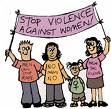AFP, By Florence Panoussian
President Thabo Mbeki, already under fire for perceived policy failings that caused an anti-immigant backlash in South Africa, now faces criticism about his handling of the crisis.
The head of state is yet to visit the worst affected areas of Johannesburg after two weeks of violence against foreigners that has left more than 50 dead and more than 25,000 displaced.
His pronouncements have been limited to a statement released more than a week after trouble began, a promise to create an investigating committee, and a brief comment carried by state radio SABC yesterday in which he talked of "the humiliating disgrace" of the episode.
Despite spreading violence, which began in Johannesburg two weeks ago but has now hit seven of the country’s nine provinces, he has not made a public address on the radio or television to appeal for calm.
"Mr President: Time to go," read a front page article in the Sunday Times. "Throughout the crisis, arguably the most grave, dark and repulsive moment in the life of our young nation, Mbeki has demonstrated that he no longer has the heart to lead," it continued.
Olmo Von Meijenfeldt, an analyst for the Institute for Democracy in South Africa, said "a strong appeal to the South African people from the president would be very welcome indeed."
The latest incident underlines Mbeki’s distant style of leadership, he added.
"He is not a man ... to put himself at the forefront," Von Meijenfeldt said.
"Due to his style of leadership and his personality, he is someone who is a bit far away from the day-to-day life of these communities."
By contrast, his rival in the ruling African National Congress party, Jacob Zuma, who defeated him to become head of the party in December, has been more vocal and is to visit victims today.
Mbeki’s foreign trips at a time of national emergency are also being lambasted.
"While Rome burns, President Thabo Mbeki is in Arusha (Tanzania); next stop: Tokyo, Japan," wrote commentator Maureen Isaacson in The Sunday Independent in an article titled "Our leaders have flown away while fairyland goes up in flames."
Despite his muted response, the issue of the violence is a huge personal embarrassment for Mbeki, an intellectual who has long championed the pan-African cause.
The warnings of a looming problem are also coming back to haunt him and the government as a whole.
Intelligence Minister Ronnie Kasrils admitted last week that the government knew tensions were growing.
"Of course we were aware there was something brewing. It is one thing to know there is a social problem and another thing to know when that outburst will occur," he said.
Outbreaks of anti-immigrant attacks have been reported since the late 1990s and the South African Human Rights Commission had warned starkly in 2007: "Xenophobia is definitely increasing."
Again, in March of this year, the commission issued a statement reiterating "its concern about the scourge of xenophobic violent attacks and brutal murders of foreign nationals."
It urged the government to pass a hate crimes law.
Both Von Meijenfeldt and Moeletsi Mbeki, of the South African Institute of International Affairs, believe a public appeal by the president would have limited impact.
Moeletsi Mbeki is the president’s own brother, but an outspoken critic nonetheless. "The current government has lost its credibility," he said.
"Even a strong statement by somebody who has such weak authority will not convince the people."
The underlying reason for the brutal outbreak of violence, which has seen armed youths purging poor slum areas of foreign inhabitants, is a failed immigration and foreign policy, he said.
"This crisis is the result of the failure of their foreign policy against Zimbabwe and they don’t want to admit that," said Moeletsi Mbeki.
He, like many others, believes President Mbeki’s failure to tackle President Robert Mugabe over Zimbabwe’s political and economic crisis is of paramount importance in the current context.
Between one and three million Zimbabweans are estimated to have fled to South Africa to find work and they now stand accused by locals of stealing jobs and committing crime.
"The solution has always been to take a strong position against Mugabe," said Moeletsi.
Nikolas pressiona Alcolumbre, presidente do Senado, para pautar Impeachment
de Toffoli
-
O deputado federal Nikolas Ferreira (PL-MG) usou suas plataformas digitais
para fazer um apelo público ao presidente do Senado, Davi Alcolumbre
(União-AP)....
17 hours ago

























No comments:
Post a Comment